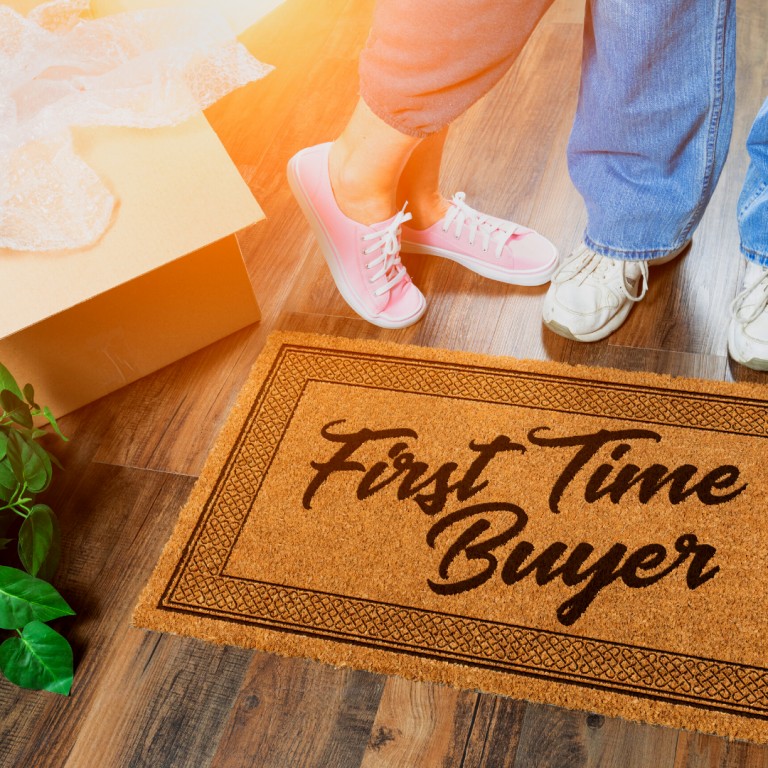
Buying your first property can be daunting and confusing. It’s a completely new experience and sometimes it may feel like you don’t even know where to begin.
To help, we’ve created this blog about frequently asked questions (FAQs) to help you through this new and exciting journey!
- Where do I begin when getting a mortgage?
- What are the costs involved?
- How do I know the property is right for me?
- What’s the difference between leasehold and freehold?
- Can I get any government support?
1. Where do I begin when getting a mortgage?
- First things first, it’s always good to get a rough idea as to how much you may be eligible for. There are plenty of mortgage calculators that can give you an estimate, so you’re not blindsided at your first mortgage appointment. Make sure you have all of your information readily available, such as salary before and after tax and any expenditures each month such as loans or credit cards. Money Saving Expert has a trusted and thorough mortgage calculator that can recommend which mortgages may suit your needs, so make sure to check them out.
- Do your research on mortgage advisors. Take advice from friends and family, read reviews, and look at their fees. It is always worth having an initial meeting to make sure they seem like a good fit for you. A lot of agents will have mortgage advisors that they recommend, but that doesn’t mean you have to go for them! Find out how much you can get before you start putting offers in. You want to ensure you fall in love with a property within your budget! Finally – always remember that they work for you. If the mortgage doesn’t meet your needs, tell them, and work together towards some other options. Don’t settle!
We work with The Mortgage Quarter.Your new home or investment property is just a mortgage application away. And with their expertise and tenacity, that property dream is closer than you think.Get in touch for a no-obligation chat about how they might be able to help you. info@tmq.org.uk
2. What are the costs involved?
- Buying a house can be expensive and things can crop up that you may have completely forgotten about. Creating a spreadsheet can be a really good way to keep track of what you’ve spent and what is still outstanding. There are unavoidable costs such as solicitors’ fees, mortgage advisors, deposits, and stamp duty (depending on the value of your property), so make sure you are prepared for the bill.
- Consider how much you want to invest upfront. If you want peace of mind and are happy to pay the price, look at surveys for the condition of the property and works that will be being held in the surrounding areas. It could save you a fortune if there’s something wrong with the property that isn’t easy to spot!
- Deposits can vary based on if you have adverse credit history, so you could be expecting to pay 5%, but get lumped with 15% instead! Always do a quick credit check before you begin to see what your credit history is looking like. Soft searches will show you the basics, without impacting your score. Experian offers a quick, easy, and free service that you can do in less than 5 minutes on your phone.
3. How do I know the property is right for me?
- Research the area! It’s not just about the house. As much as you need to love the home and see the potential, you need to know the area ticks all your boxes too. Crime reports are easily accessible and can show you the statistics for the surrounding areas, to ensure you feel safe when purchasing. Looking at doctor and school recommendations can also prepare you for family setups, especially important if this first-time home will actually be your forever home! Local events and hot spots are worth researching too. Does it seem like an area you could see yourself being happy?
- Look at other listings in the same area. Does the house seem reasonably priced? Have other properties gone for similar prices or does this seem too high/low? – this could indicate some underlying issues that need to be addressed!
4. What’s the difference between leasehold and freehold?
- With freehold, you own the property and land. With leasehold, you own the property for a fixed period of time but not the land it is built on. This means that if you only have 100 years left on the lease, you may need to pay a hefty sum to get this topped up. Leasehold also usually requires a monthly payment to maintain the grounds.
- Although there is nothing wrong with leasehold, freehold saves you money in the long run. Definitely make sure to find out how long the leasehold is left on the property – the lower the leasehold, the less you want to be paying for the property. Ideally, if you were purchasing a flat, you would want 999 years!
5. Can I get any government support?
In short – yes! Make sure to research Help To Buy Schemes. These are intentionally put in place to help first-time buyers that only have a 5% deposit, purchase new build properties. Find out more about how they work below -
- You need at least 5% of the sale price of your new-build flat or house as a deposit.
- The government lends you up to 20% of the sale price.
- You borrow the rest (up to 75%) from a mortgage lender, on a repayment basis.
The list of questions is endless, however, hopefully, this has helped to get you initially started and excited about purchasing your first home. If you have any further questions, Clever would be delighted to help you on this journey, so feel free to pop into our office for a chat and some advice!
Don’t forget to keep an eye on our sales page and book in a viewing nice and early if any properties take your fancy, or pop into our office on North Hill.


